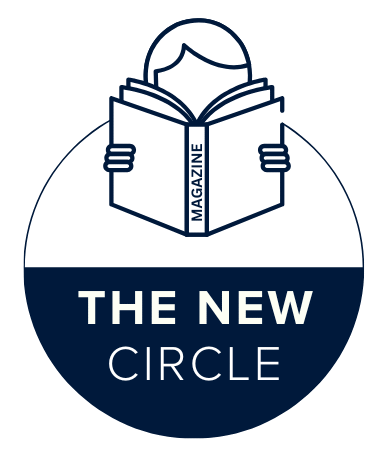Choosing the right type of bank account is one of the most important steps in managing your finances. Each account type serves a unique purpose, from handling daily transactions to saving for the long term. Understanding the differences between checking accounts, savings accounts, certificates of deposit (CDs), and money market accounts will help you decide where to place your money and how to make it work for you. Whether you’re opening your first account or looking to expand your options, this guide breaks down the essentials. If you’re searching for a bank in Kingston, PA, the principles outlined here apply no matter where you bank, but having a local branch to support your needs can also add convenience.
Checking Accounts: Everyday Access to Your Money
A checking account is designed for frequent use. It allows you to deposit money, withdraw funds, pay bills, and make purchases with ease.
Key Features
- Debit card and check-writing access for everyday spending.
- Direct deposit for paychecks.
- Online and mobile banking for managing funds quickly.
- FDIC insurance for safety, provided the bank is federally insured.
When to Use a Checking Account
A checking account is your primary tool for handling routine expenses. It’s best for paying rent or a mortgage, covering utility bills, buying groceries, or transferring money to others. Because checking accounts are built for flexibility, they typically offer low or no interest on balances.
Things to Watch For
While many banks now offer fee-free checking, some accounts carry monthly maintenance charges. These can often be waived if you meet conditions such as setting up direct deposit or maintaining a minimum balance.
Savings Accounts: Building a Financial Cushion
A savings account is where you set aside money you don’t plan to spend right away. These accounts are best for short- to medium-term goals like emergency funds, vacations, or saving for a down payment.
Key Features
- Interest earnings that help your money grow over time.
- FDIC insurance for protection.
- Limits on certain types of withdrawals, though most allow easy transfers to checking.
When to Use a Savings Account
Savings accounts are ideal for money you want to keep safe but still accessible. They provide stability and modest growth without the risks associated with investing.
Things to Watch For
Interest rates vary widely. Some traditional accounts offer very low returns, while online and high-yield savings options can provide much more competitive rates. Always compare before deciding where to keep your savings.
Certificates of Deposit (CDs): Secure, Fixed Returns
A CD is a time deposit that locks in your money for a set period in exchange for a guaranteed interest rate. Terms can range from a few months to several years.
Key Features
- Fixed interest rates, often higher than standard savings accounts.
- FDIC insurance up to the legal limit.
- Terms that require funds to remain in the account until maturity.
When to Use a CD
CDs are best if you know you won’t need the money for a specific period. They’re often used for saving toward future goals, such as purchasing a car or funding a child’s education, when the timeline is predictable.
Things to Watch For
Withdrawing funds before the CD matures usually results in a penalty. Additionally, if interest rates rise during your CD term, your money is locked at the lower rate. Laddering CDs—spreading deposits across different terms—can provide flexibility while still benefiting from higher yields.
Money Market Accounts: A Blend of Savings and Checking
Money market accounts combine features of savings and checking accounts. They typically offer higher interest rates than savings accounts but still provide limited transaction capabilities.
Key Features
- Earn higher interest than a standard savings account.
- May include debit card or check-writing privileges.
- FDIC insurance for protection.
When to Use a Money Market Account
These accounts are great if you want to earn more interest while still having access to your money for occasional transactions. They’re often used for emergency funds or large balances that don’t need to move daily.
Things to Watch For
Money market accounts often require higher minimum balances to avoid fees or to earn the advertised interest rate. Be sure to confirm requirements before opening one.
How to Decide Which Accounts You Need
For most people, a combination of account types works best:
- A checking account for everyday expenses.
- A savings account for building an emergency fund.
- CDs for long-term goals when you won’t need immediate access.
- A money market account for larger balances you want to grow but keep somewhat liquid.
Small business owners and families alike benefit from diversifying accounts to manage different financial goals effectively.
Benefits of Working With a Local Bank
While online banks often provide competitive rates, there are unique advantages to using a bank in Kingston, PA if you live or operate in the area. Local banks can offer personalized service, community involvement, and the ability to walk into a branch for face-to-face support. For businesses especially, building a relationship with a nearby bank can help when applying for loans, managing cash flow, or opening specialized accounts.
Frequently Asked Questions About Bank Accounts
Do I need more than one type of account?
Yes. Most people use at least a checking account and a savings account. Having multiple accounts helps organize finances and meet different goals.
Are all accounts insured?
Checking, savings, CDs, and money market deposit accounts are insured up to $250,000 per depositor, per institution, provided the bank is FDIC insured. Investment products, however, are not covered.
Which account pays the most interest?
Typically, CDs and money market accounts pay higher interest than standard savings accounts, but high-yield savings can be competitive as well.
Can I open accounts online?
Yes. Many banks and credit unions offer digital applications for checking, savings, and money market accounts. Some CDs can also be opened online.
How do I choose the right account for me?
Start by reviewing your financial goals. If you need liquidity, a checking or savings account works best. For higher returns and fixed terms, CDs may be better. If you want a hybrid option, money market accounts provide flexibility and growth potential.
Final Thoughts: Building a Strong Financial Foundation
Each type of account—checking, savings, CDs, and money market—has its role in a solid financial strategy. By understanding how they differ, you can use them together to handle daily spending, prepare for emergencies, and grow your wealth steadily. If you’re comparing options, think about your goals, timeline, and how much access you’ll need to your funds. Whether you open an account with a national bank, an online institution, or a bank in Kingston, PA, having the right mix of accounts helps you stay financially prepared for both expected and unexpected needs.
YOU MAY ALSO LIKE: The Ultimate List of Personal Finance Apps You Need in 2025

